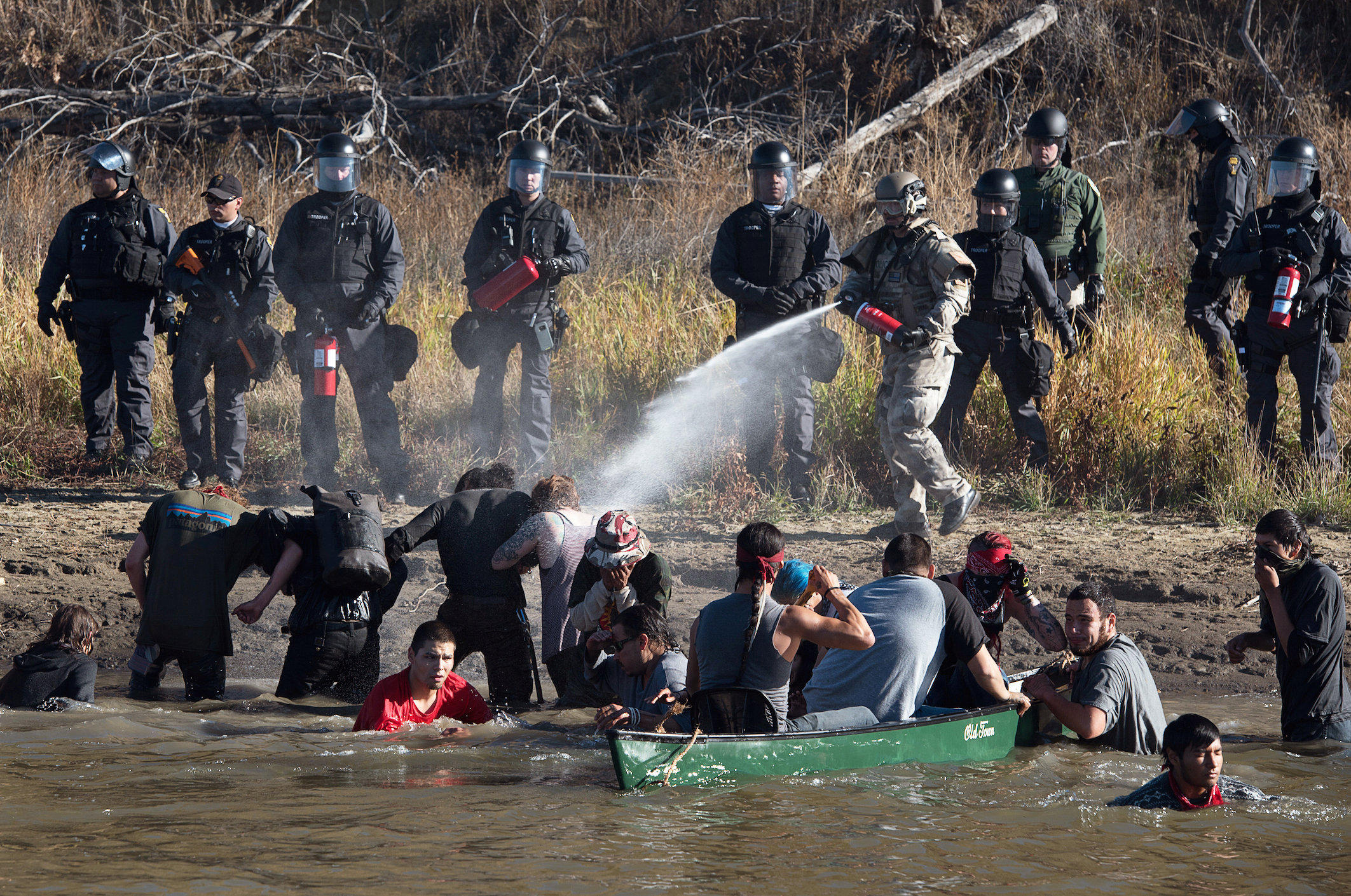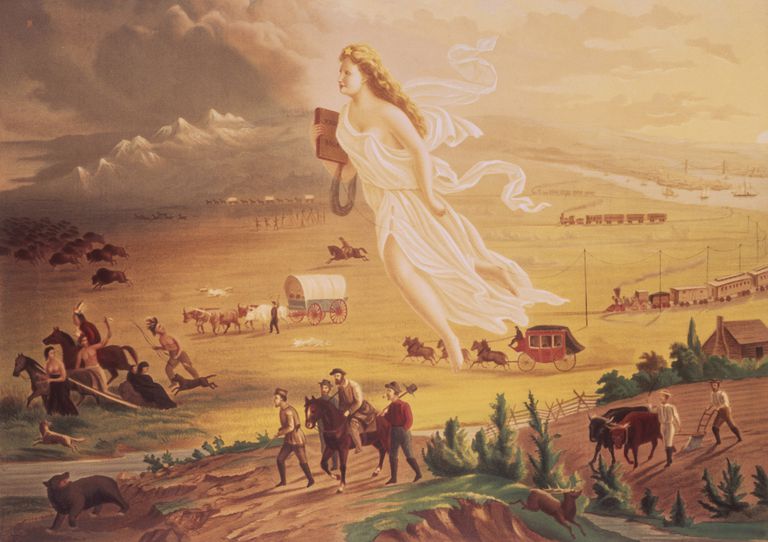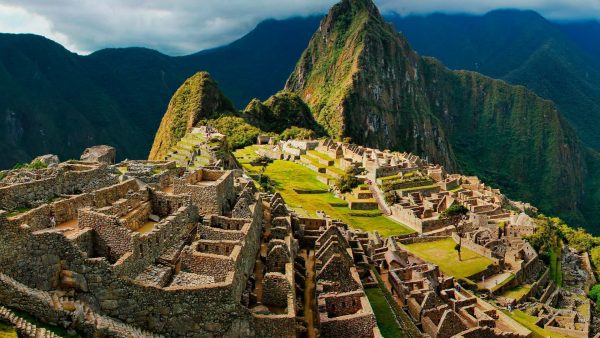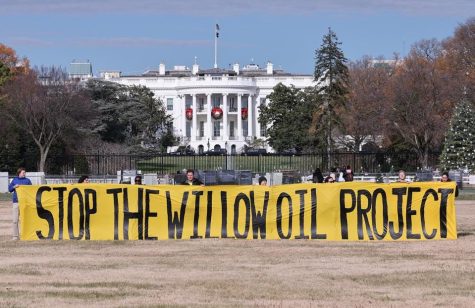Keep Columbus Day: A Mexican-American Perspective
Six states and 130 cities and towns have renamed Columbus Day to Indigenous Peoples Day. There are worldwide protests against the celebration of “Columbus Day,” in favor of “Indigenous Peoples Day.” Within the context of state subjugation in which the Native American population exists, a name change means censorship of the genocidal, exploitative context on which the US is founded. This context is essential to understanding the relationship between the United States and our native population.
There are countless testimonies to the atrocities committed by Columbus and the men he commanded. Bartolome de Las Casas, a young priest who participated in the conquest noted, “Our work was to exasperate, ravage, kill, mangle and destroy,” and that “He [Columbus] committed irreparable crimes against the Indians.” In the northern Caribbean, Columbus facilitated the expropriation of natural resources and exploitation of the Taino natives from 1492 to 1500. In this area and during this period, the Spanish “grilled natives,” “cut them into pieces like sheep,” and commonly would “string up and burn alive 13 at a time – in memory of Jesus and his 12 Apostles.” The genocide lasted until 1518. Although the exact number of Tainos is uncertain, Spanish estimates alleged that as many as three million Tainos were killed by disease and genocide – 85% of the population. Most were already dead when smallpox arrived in 1518.

Christopher Columbus is nondetachable from systematic European colonization. His discoveries to the European world laid the framework for rapid colonization of the continent. Despite never setting foot in the North American continent, Columbus’ colonization characterized the settlement of the continent. Finally, this leads us to the formation and evolution of what we now call “The United States.” In an interview, social critic Dr. Cornell West discusses the origin of the United States in regards to the indigenous population:
“This really crucial Democratic experiment is predicated on the monstrous crime against indigenous peoples that we’ve never come to terms with. So you get a lot of neoliberal chatter about America’s original sin, slavery. That’s a lie. The original sin was that we had to decide whether we were going to coexist with indigenous peoples or dominate them. The decision was for the most part genocide in effect in terms of domination,” (West).
The style of manifest destiny that characterized the colonization of America and the seizure of land from our native populations echo the practices and perspectives of Christopher Columbus. The United States is, at its core, a settler-colonial state. It was formed by Europeans seeking new domains, and the sovereignty of the indigenous people was invariably in conflict with that goal. The history of the U.S., up until now, has been a development of subjugation between the expansionist goals of the state, and the goals of an existence lived with dignity. The legacy of European colonial practices on the United States’ forming philosophy is detailed by authors Scott L. Pratt and Erin McKenna in “American Philosophy: From Wounded Knee to the Present.”
“It is also apparent that the shared history of the hemisphere is one framed by the dual tragedies of genocide and slavery, both of which are part of the legacy of the European invasions of the past 500 years. Indigenous people north and south were displaced, died of disease, and were killed by Europeans through slavery, rape, and war. In 1491, about 145 million people lived in the western hemisphere. By 1691, the population of indigenous Americans had declined by 90-95 percent, or by around 130 million people,” (Pratt and McKenna).
:max_bytes(150000):strip_icc()/American-Progress-painting-Gast-3000-3x2gty-5685a13e5f9b586a9e1e3eb0.jpg)
Manifest Destiny as seen through John Gast’s “American Progress”
Before I move on, I want to define the term “settler-colonialism” because I believe understanding it is crucial to understanding the origin and continued existence of the United States. If “colonialism” refers to a historical period, “settler-colonialism” is the imposed societal “structure” that evolves from it. “This structure is characterized by relationships of domination and subjugation that become woven throughout the fabric of society, and even becomes disguised as paternalistic benevolence. The objective of settler colonialism is always the acquisition of indigenous territories and resources, which means the native must be eliminated,” writes Dina Gillio-Whitaker. This “paternalistic benevolence” is seen through the state’s attitude toward the ownership of indigenous lands. In 1823, Supreme Court Justice John Marshall in Johnson v. McIntosh ruled that Native Americans had no right to title on their own lands because the European immigrants “bestowed on them civilization and Christianity.”
Fast forward to the modern-day, and we can see how the relationships have evolved and changed between the indigenous and the settler-colonial state. Dakota Access LLC. announced the construction of an oil pipeline from North Dakota to Illinois. The original route of the pipeline passed near through the white, settled city of Bismarck, threatening its water supply. The route was reconsidered and redirected to the center of unceded Sioux territory, next to Standing Rock Indian Reservation. The tribe considered the pipeline as a threat to the region’s clean water and sacred burial grounds due to Dakota Access having had over 200 leaks from its pipelines in the previous six years. The tribe mounted legal defense; resistance was met with violence.
:no_upscale()/cdn.vox-cdn.com/uploads/chorus_asset/file/7573507/MAP3.jpg)
“On Sunday, these clashes turned violent when law-enforcement officials used water cannons on protesters in freezing weather — sending some 26 people to the hospital with bone fractures or hypothermia. This came after an earlier major confrontation on October 27, when activists occupied private land along the pipeline’s proposed route, arguing that it actually belonged to the tribes under an 1851 treaty with the US government that hasn’t been properly honored. In response, police used rubber bullets, pepper spray, and water cannons to disperse the protesters, arresting 141 people in all.” (Vox)

For a brief period, Standing Rock became a major international protest. The calls grew louder for a presidential response. In response, President Obama said, “We’re gonna let it play out for several more weeks and determine whether or not this can be resolved in a way that is properly attentive to the traditions of the first Americans.” Paternalistic benevolence, in his words, disguises the reality of the governmental response.
The ambiguity of the message does not match how willing the militarized police were to brutalize those that stood in protest to defend their land. That is because the law enforcement commissioned federally and by the state fundamentally were not trying to enforce the law, they were trying to send a message: the sovereignty of the indigenous lies second to the immediate interests of capital and the state. This relationship hurts Native Americans in an institutional manner that we have seen in the continued desperation of conditions in Indian reservations throughout the country.
It is clear the history of colonialism informs the present conditions and attitude of the state toward the American Indian. Although we may look ambivalent, or even “paternalistically benevolent” toward the indigenous population, our past should tell us that the goals of the state and the freedom of the natives are at odds. For this reason, I think we should keep Columbus Day. Although many indigenous Americans might disagree with me, I believe changing “Columbus Day” to “Indigenous Peoples Day” is another step toward ignoring the political and socioeconomic standing of the Indigenous in our society. It is, in my view, an act of paternalistic benevolence to censor the name of Columbus for the sake of feigned political correctness. From the names of our cities to the manifest destiny ideology upon which we are founded, to keep the name Columbus in our minds is to continue having conversations about where we are, what got us here, and where we go now.
https://www.cbsnews.com/news/erin-schrode-journalist-shot-with-rubber-bullets-during-dakota-access-pipeline-protests/
Howard Zinn’s “A People’s History of the United States”
American Philosophy: From Wounded Knee to the Present
https://www.thoughtco.com/american-settler-colonialism-4082454
https://www.vox.com/2016/9/9/12862958/dakota-access-pipeline-fight
https://www.smithsonianmag.com/travel/what-became-of-the-taino-73824867/











